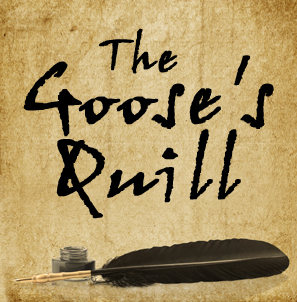I normally don’t get writer’s block. If one story isn’t humming, I’ll jump to another until my subconscious has time to sort out the mess going on in story #1. So I’m a bit surprised at my current situation. My WIP was rolling along fine in first draft—rough, some ugly, but words on the page—when I got to THE climactic battle scene. Forces of good and evil, all that happy stuff.
And I couldn’t write it.
I can think of 3 reasons for the block:
- I am a bad writer without the skills needed to write it.
- I am afraid to write the scene because it won’t match what’s in my head.
- I don’t know enough about what needs to happen in the scene.
Okay, so even though I have days where I wonder why the heck I am doing this writing thing, I know I am not a bad writer. My skills are up to this task. So it’s not that.
I am always afraid to write every scene, because it never does match up with what’s in my head. At least, not in first draft. That’s what revision is for. So that’s not it.
Which leaves #3—I don’t know enough about the scene. Now, I outlined this entire book, so I am fully aware of what needs to happen and what the stakes are. So that part isn’t the problem. I think it comes back to my less-than-stellar world-building skills. Why? Because I know what has to happen, but am blanking on how it has to happen. I mean, we’ve got magic and spirits and stuff like that going on. Personally, I’m no good in a pillow fight, let alone a battle for the fate of the universe.
So I think that’s my problem in a nutshell. The magic and power of these beings is tremendous, but I’m not precisely sure a) how to depict it and b) what the upper limits are. Can they hurl suns and planets at each other? Are their spirits indestructible? Since they are top of the food chain, is there anything/anyone below them that can stop them?
Since I have plotted out the entire book, I’ve skipped writing the battle scene for now and moved forward. Since I know who wins and what the consequences are, I am able to do that. I am hoping that while I work ahead, my wonderful subconscious mind will simmer away and eventually come up with what I need.
Have you ever been blocked on a certain scene, but not the rest? How did you solve your problem?

Raritan Valley Community College author panel–and the anthology arrives!
Last night I spent a fun evening at Raritan Valley Community College library. A panel of 4 authors–Keith Fritz, Anthony Giordano, Mercedes Rochelle, and me–met with a group at the college library. We had at least 30 people in the audience to watch the author panel, maybe more!
The author panel had a good mix of genre and form–adult horror/dark fantasy, middle grade and YA sci-fi/fantasy, adult historical fiction, and a playwright. Discussion was lively, covering everything from our process, to our greatest challenges. The audience asked about self-publishing, writer’s block, and memoir writing. The group was engaged and attentive, and it was a pleasure to talk with them. Many came up afterward and chatted with us one-on-one.
Thank you so much to Carina Gonzalez, the Raritan outreach librarian who set up this author panel, and to all the people who came to see it. It’s always gratifying to share what I’ve learned with others just starting out. I remember how overwhelming it all seemed when I first began my journey, and I am happy if I could help give someone the advice they needed to better understand something they’re struggling with.
In other news, my copies of the Silver Pen Magazines 2017 Anthology arrived today! They landed on my doorstep after I had left for my author panel, so I couldn’t take them with me, but I am so happy they are here!